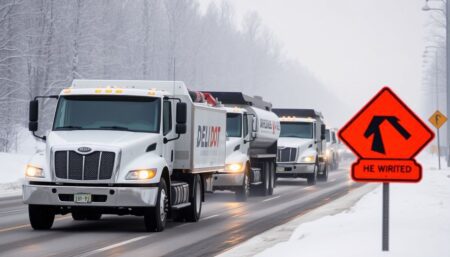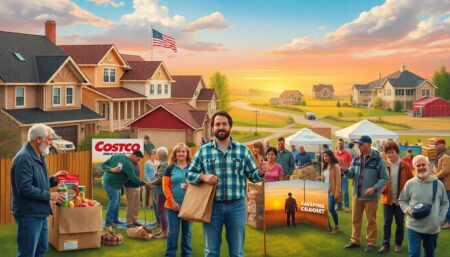Have you ever wondered what the world’s most prepared individuals keep on their bookshelves? Or perhaps you’re a prepper yourself, eager to fortify your survival library with the most essential reads? In the vast landscape of self-reliance literature, it can be challenging to discern which books are truly indispensable. Fear not, fellow survival enthusiast, for we have embarked on a mission to curate the ultimate survival library, brimming with prepper books that promise to equip you with invaluable skills and knowledge.
First, let’s agree on one thing: a well-stocked survival library is not merely a luxury for the avid reader; it’s a necessity for anyone serious about self-reliance and preparedness. According to a survey by the Prepper Website, 87% of preppers believe that knowledge is the most crucial aspect of preparedness, even surpassing the importance of supplies and gear. So, if you’re ready to transform your bookshelf into a fortress of survival wisdom, you’re in the right place.
Now, let’s make a promise. By the end of this article, you will have a comprehensive list of prepper books that span various aspects of survival, from first aid and wilderness skills to homesteading and self-defense. We’ll delve into the classics that have stood the test of time, as well as newer titles that offer fresh perspectives and cutting-edge information. Whether you’re a seasoned prepper or just starting your journey, this survival library will serve as an invaluable resource, empowering you with the confidence and know-how to face any challenge.
But before we dive into our list, let’s consider this: what if the next great disaster struck tomorrow? Would you be ready? Would you know how to treat injuries, find food and water, or navigate without modern technology? The truth is, none of us can predict the future, but we can prepare for it. And that’s precisely what this article is all about – providing you with the literary tools to face uncertainty head-on.
So, grab your favorite pen, and let’s embark on this enlightening journey together. By the time we’re done, you’ll have a clear roadmap to building a survival library that will not only inspire and educate but also ensure your family’s safety and well-being in the face of adversity. Let’s get started!
Cultivating Self-Reliance Through Knowledge: A Comprehensive Guide to Essential Prepper Books
Embarking on the journey towards self-reliance is a noble pursuit, and what better way to start than by immersing oneself in the wisdom of seasoned preppers and survival experts? ‘Cultivating Self-Reliance Through Knowledge: A Comprehensive Guide to Essential Prepper Books’ is your roadmap to empowerment, offering a curated list of must-reads that will equip you with the skills and knowledge necessary to navigate life’s uncertainties. From understanding the art of bushcraft and wilderness survival to mastering the intricacies of homesteading and self-sufficiency, these books delve into a myriad of topics, each one a stepping stone on your path to self-reliance. They are not just books; they are companions, guides, and teachers, written by those who have walked the path before you. So, grab your favorite reading nook, settle in, and let the words of these experts ignite the spark of self-reliance within you. After all, knowledge is not just power; it’s the first step towards true independence.

The Foundational Core: Comprehensive Survival Guides
In the vast, ever-evolving landscape of preparedness and survival literature, one constant remains: the indispensable role of comprehensive survival guides as the foundational core of any prepper’s library. These guides, much like the sturdy roots of a towering tree, anchor our understanding and skills, enabling us to navigate the unpredictable with confidence and resilience.
At the heart of these guides lie essential aspects that every survivalist should master. Consider, for instance, the art of shelter building
- a skill that can mean the difference between a comfortable night under the stars and a shivering, sleepless one. From the humble debris hut to the intricate snow cave, understanding how to construct effective shelters is a cornerstone of survival, allowing us to protect ourselves from the elements and conserve our energy.
Fire starting, another critical skill, is not merely about keeping warm. It’s about signaling for help, purifying water, cooking food, and maintaining morale. A comprehensive guide will walk you through various methods, from the primitive bow drill to the modern ferro rod, ensuring you’re never left in the cold.
Navigation, too, plays a pivotal role. In a world without GPS, knowing how to read a map, use a compass, and interpret the natural signs around us can keep us from becoming lost and disoriented. It can guide us to safety, to resources, and ultimately, back home.
First aid, the final piece of this survival puzzle, is perhaps the most humbling. It reminds us that in the face of adversity, we are not just fighting for our own survival, but for the lives of those around us. A comprehensive guide will equip us with the knowledge to treat injuries, stabilize conditions, and even perform lifesaving procedures.
Among the myriad of survival guides available, two stand out for their comprehensiveness and popularity: ‘SAS Survival Handbook’ by John ‘Lofty’ Wiseman and ‘Bushcraft 101’ by Dave Canterbury. The former, a no-nonsense guide drawn from the British SAS’s rigorous training, covers a wide range of survival scenarios, from desert to arctic. The latter, a modern classic, focuses on bushcraft skills, teaching readers how to thrive in the wilderness using minimal equipment. Both are testament to the power of a well-crafted survival guide, offering not just information, but the potential for life-saving skills and peace of mind.

Medical Knowledge for Self-Reliance
In the face of unforeseen circumstances, such as natural disasters or remote travel, having medical knowledge can be the difference between life and death. This is where self-reliance comes into play, and understanding basic medical concepts becomes not just useful, but crucial. Imagine being stranded in the wilderness, miles away from the nearest hospital. A simple cut could become infected, or a sprained ankle could turn into a life-threatening situation. This is where books like ‘Where There Is No Doctor’ by David Werner come into the spotlight. This comprehensive guide covers a wide range of medical topics, from first aid to herbal remedies, making it an invaluable resource in a survival situation. It’s designed to be accessible, even to those with no medical background, ensuring that anyone can learn to treat common ailments and injuries. Another gem is ‘The Doom and Bloom Survival Medicine Handbook’ by Joseph Alton and Amy Alton. This book goes a step further, delving into more complex medical procedures that could be necessary in a long-term survival situation. It covers topics like setting broken bones, treating burns, and even performing minor surgeries. Both books are written in a clear, concise manner, making them perfect for those looking to expand their medical knowledge for self-reliance. So, whether you’re a seasoned survivalist or just someone who likes to be prepared, these books are a must-read. They could quite literally save your life.
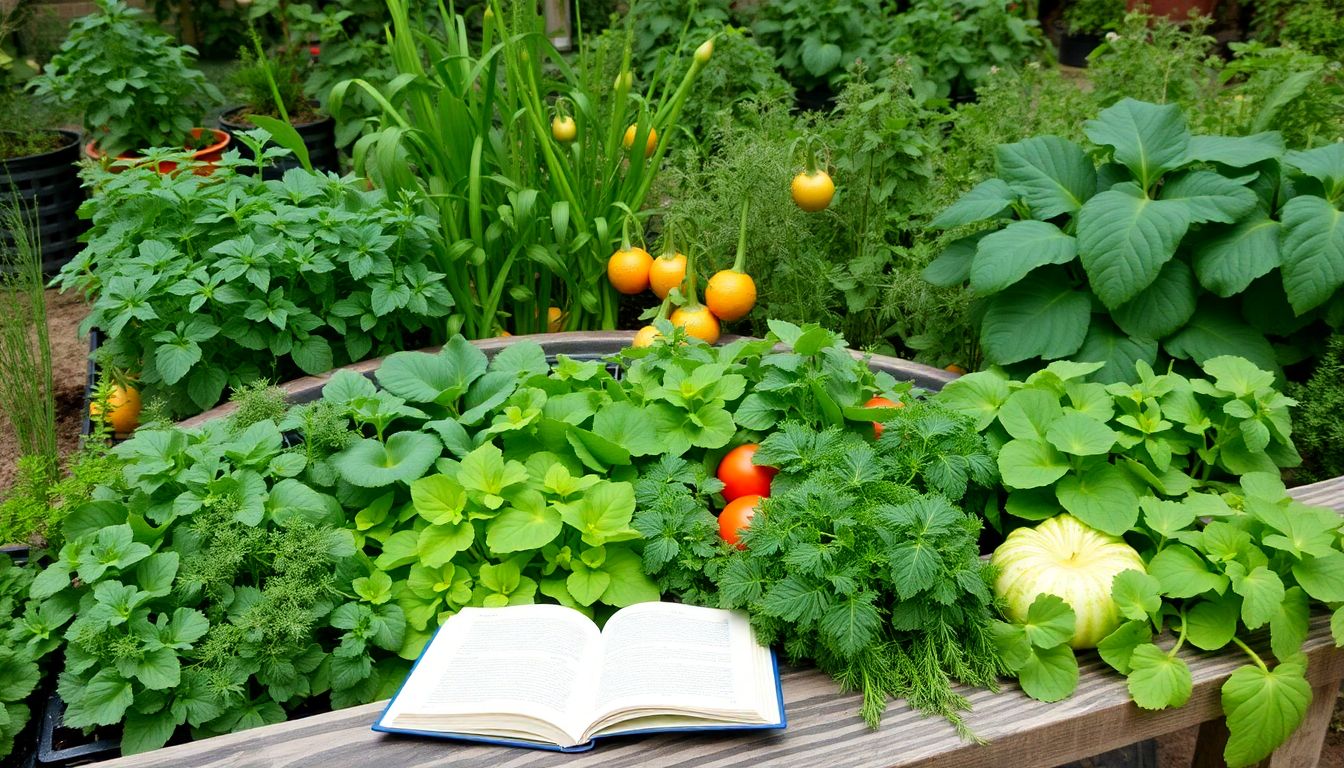
Gardening for Self-Sufficiency
Gardening, often seen as a hobby, is a powerful tool for self-sufficiency. It’s not just about growing flowers; it’s about understanding plant life, cultivating food, and becoming more self-reliant. By growing your own fruits and vegetables, you’re reducing your dependence on supermarkets, saving money, and eating healthier.
To embark on this journey, it’s crucial to understand the basics of plant cultivation. Books like ‘Gaia’s Garden’ by Toby Hemenway are excellent starting points. Hemenway delves into permaculture, a design approach that mimics the patterns and relationships found in nature. He discusses how to create an abundant garden ecosystem that requires minimal effort and resources.
Another fascinating approach is hydroponics, a method of growing plants without soil. ‘Hydroponics: A Practical Guide to Growing Plants Without Soil’ by Howard M. Resh is a comprehensive guide that teaches you how to set up and maintain a hydroponic system. This method is particularly useful in urban environments where space is limited.
For those interested in maximizing space, ‘The Square Foot Gardening Solution’ by Mel Bartholomew is a must-read. Bartholomew’s innovative method involves dividing your garden into one-foot squares, each dedicated to a different plant. This approach allows you to grow more produce in less space, making it perfect for small gardens or balconies.
Whether you’re a seasoned gardener or a beginner, these books offer valuable insights into different gardening methods. They’re not just about growing plants; they’re about understanding the interconnectedness of life, the importance of sustainability, and the joy of self-sufficiency.
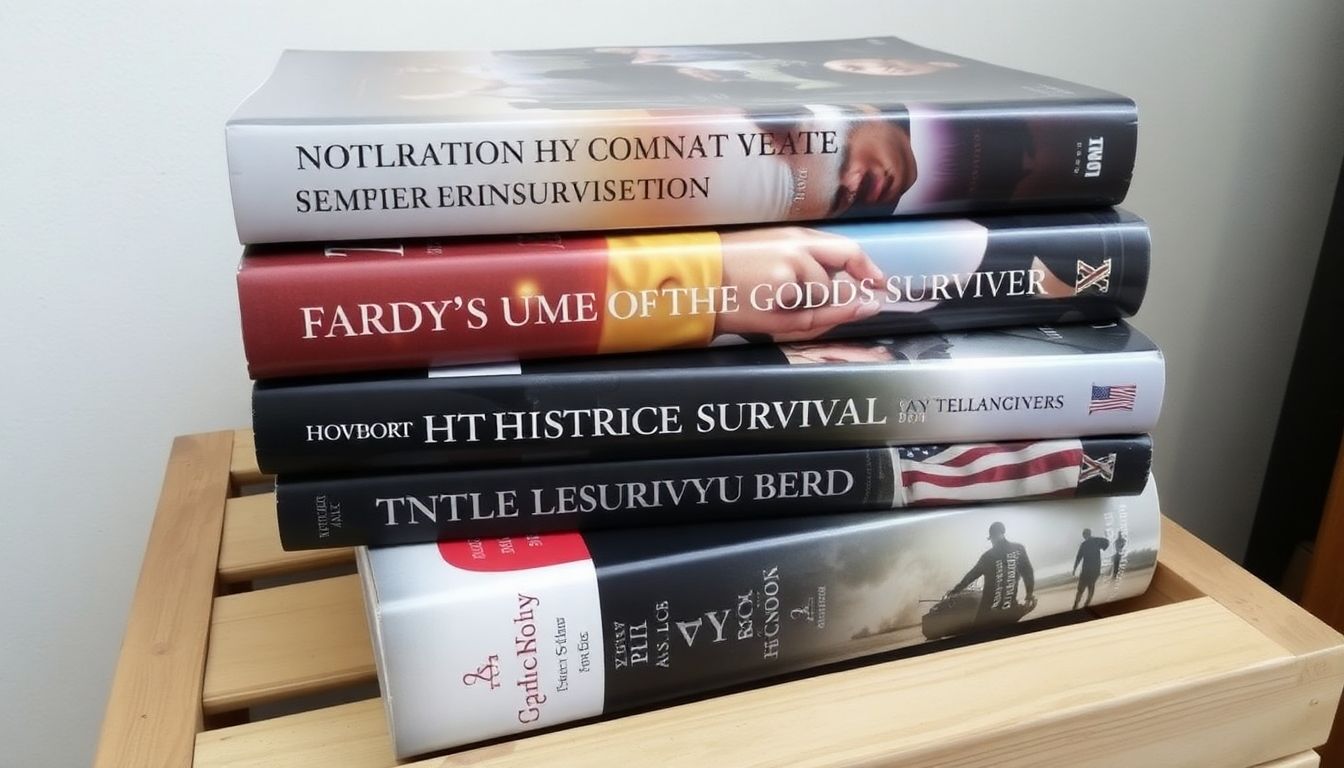
Historical Accounts of Resilience
Historical accounts of resilience serve as beacons of hope and inspiration, illuminating the human spirit’s capacity to endure and overcome adversity. By delving into these true stories, we not only gain insights into our collective past but also acquire valuable lessons that can fortify our present and future. Two notable works that exemplify this are Gary Paulsen’s ‘Hatchet’ and Andy Weir’s ‘The Martian’.
‘Hatchet’, a semi-autobiographical novel, recounts Paulsen’s harrowing experience as a young boy surviving alone in the Canadian wilderness after a plane crash. Weir’s ‘The Martian’, on the other hand, presents a fictional yet scientifically rigorous account of an astronaut’s struggle for survival on Mars after being left behind by his crew. Both narratives offer compelling lessons for preppers.
Firstly, these stories underscore the importance of adaptability. In ‘Hatchet’, Paulsen’s protagonist, Brian, learns to use his surroundings to his advantage, fashioning tools from nature and understanding its rhythms. Similarly, ‘The Martian’s’ Mark Watney demonstrates the value of scientific knowledge and ingenuity in adapting to an alien environment. Preppers can draw from these examples to understand the importance of versatility and resourcefulness in facing unexpected challenges.
Secondly, these accounts emphasize the power of mental fortitude. Both Brian and Mark face overwhelming odds, yet they maintain their composure and determination. They use humor, problem-solving, and sheer willpower to keep going. This resilience is a crucial aspect of preparedness, reminding us that our minds are our most powerful tools in facing adversity.
Lastly, these stories highlight the value of community, even when one is physically isolated. Brian’s memories of his parents and friends sustain him, while Mark’s determination to reunite with his crew drives him. Preppers can learn from this, understanding that while self-reliance is essential, a support network, whether physical or psychological, can greatly enhance our chances of survival.
In conclusion, historical accounts of resilience like ‘Hatchet’ and ‘The Martian’ offer more than just engaging narratives. They provide practical lessons and inspiration for preppers, reminding us that while adversity is inevitable, human resilience is our greatest asset.

Craftsmanship and Self-Sufficiency Skills
In the grand tapestry of human resilience, craftsmanship and self-sufficiency skills weave a sturdy thread that has sustained us through centuries. These practical arts, once commonplace, have regained significance in our modern world, not just as hobbies, but as vital tools for survival and self-reliance. Imagine, for instance, the comfort of a hand-carved wooden spoon, or the satisfaction of a pair of socks knitted with your own hands. These are not mere objects; they are testaments to our ability to create, adapt, and endure.
Books like ‘The Foxfire Book’ series and ‘The Encyclopedia of Country Living’ serve as invaluable guides, preserving and sharing these ancient skills for generations to come. The Foxfire series, born out of a high school journalism project in the 1960s, is a treasure trove of Appalachian wisdom, filled with step-by-step instructions on everything from blacksmithing to moonshining (though we’ll stick to the former!). It’s a testament to the power of storytelling and intergenerational knowledge sharing.
‘The Encyclopedia of Country Living’, by Carla Emery, is another comprehensive guide, offering a wealth of information on everything from raising chickens to making cheese. It’s a practical manual for those seeking to live off the land, filled with tips and tricks honed over generations of rural living. Both these books, and many like them, remind us that self-sufficiency is not just about surviving, but about thriving, about creating a life that is not just sustainable, but also deeply fulfilling.
In a world that often feels disposable, these books offer a path back to durability, to a life where things are made to last, where skills are honed over time, and where the satisfaction of a job well done is its own reward. So, whether you’re a seasoned craftsman or a curious beginner, delving into these books is more than just a journey into practical skills; it’s a journey into a way of life that is as old as humanity itself.

Understanding and Preparing for Disasters
Understanding and preparing for disasters is not just a matter of being informed, but also a crucial aspect of responsible citizenship. The world is a dynamic place, and while we can’t predict every event, we can certainly prepare for a wide range of possibilities. Disasters, whether natural or man-made, can strike at any time, and the first step towards being ready is understanding the different types we might face.
Natural disasters, for instance, include earthquakes, hurricanes, wildfires, and floods. Each of these requires a unique response. Earthquakes, for example, demand immediate protection from falling debris, while hurricanes necessitate evacuation and flood preparation involves safeguarding property and preparing for potential rescue. Man-made disasters, such as chemical spills or nuclear accidents, require different types of preparation and response.
Books can be invaluable tools in this process. Cody Lundin’s ‘When All Hell Breaks Loose’ provides detailed, practical information on surviving a wide range of disasters, from natural to man-made. Lundin’s straightforward, no-nonsense approach makes complex topics accessible to readers of all backgrounds. On the other hand, James Howard Kunstler’s ‘The End of the World Is Near! (And Other New World Orders)’ offers a unique perspective on societal collapse and the potential for widespread disaster. Kunstler’s work is a thought-provoking exploration of how our systems might fail and how we can prepare for such eventualities.
Preparing for disasters involves several key steps. First, it’s crucial to stay informed about the types of disasters that could occur in your area. This might involve signing up for local emergency alerts, following weather reports, or even taking courses on disaster preparedness. Second, create an emergency plan for your family. This should include evacuation routes, meeting points, and communication strategies. Third, build an emergency supply kit. This should include enough food, water, and medical supplies to last at least 72 hours. Finally, practice your plan. Regular drills can help ensure that everyone in your family knows what to do in an emergency.
In conclusion, understanding and preparing for disasters is a complex but vital task. By staying informed, creating a plan, and building a supply kit, we can all do our part to ensure that we’re ready for whatever the future may hold. And books like ‘When All Hell Breaks Loose’ and ‘The End of the World Is Near!’ can be invaluable guides on this journey.

Navigation and Orienteering
In the grand tapestry of survival skills, navigation and orienteering stand out as indispensable threads, weaving a path through the labyrinth of the unknown. When lost, our primal instinct is to find our way back, and this is where the art of navigation comes into play. In a survival situation, knowing how to read a map, use a compass, and interpret natural signs can mean the difference between a safe return and an extended stay in the wild.
The importance of these skills cannot be overstated. They empower us to traverse unfamiliar terrain, find water sources, avoid hazards, and ultimately, find our way back to safety. It’s like having a secret language with the wilderness, allowing us to communicate our intentions and understand its responses.
There are numerous resources available to learn these crucial skills. ‘Be Expert with Map and Compass’ by Bjørn Kjellström is a seminal work in the field. Kjellström, a renowned Swedish orienteer, demystifies the art of map reading and compass use. He guides readers through the intricacies of contour lines, grid references, and magnetic declination, making complex concepts accessible to all. His step-by-step approach, coupled with practical exercises, ensures that readers leave with a solid understanding of these tools.
For those interested in the more esoteric aspects of navigation, ‘The Natural Navigator’ by Tristan Hunt is a fascinating exploration of ancient navigation techniques. Hunt delves into the use of the sun, stars, plants, and even animal behavior to determine direction. He also explores the role of cultural landscapes and their impact on navigation. This book is not just about learning a skill, but about connecting with the natural world in a deeper, more meaningful way.
Both books offer invaluable insights into the world of navigation and orienteering. They remind us that while technology has made our lives easier, the art of navigating by instinct and observation is a skill worth preserving. After all, every step we take is a testament to our ability to find our way in this vast, complex world.
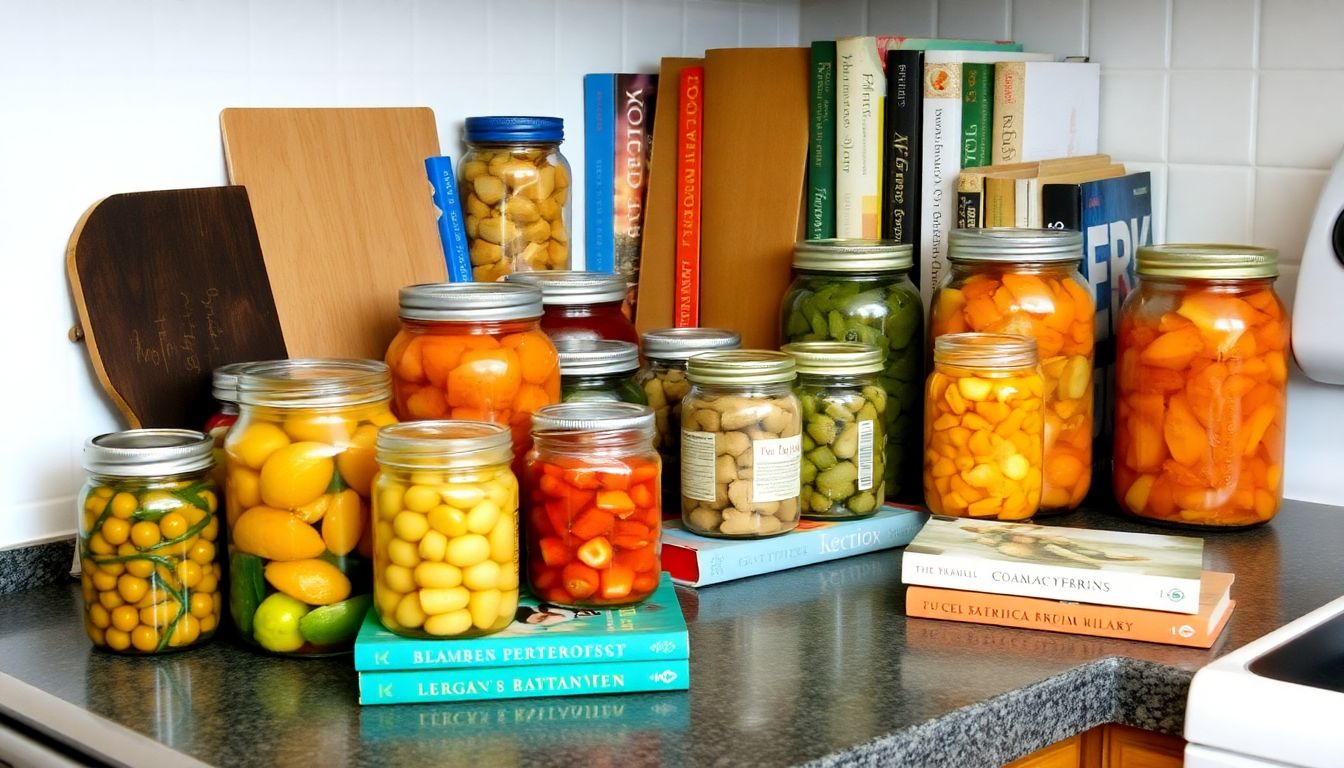
Cooking and Food Preservation
In the grand tapestry of self-sufficiency, knowing how to cook and preserve food is a thread that weaves through every aspect, especially in survival situations. It’s not just about sustenance; it’s about nourishment, morale, and even cultural connection. When the going gets tough, the ability to transform wild ingredients into a comforting meal or preserve excess food for later can make all the difference.
Books are our compasses in this culinary journey, guiding us through the wilderness of foraging, hunting, fishing, and food preservation. ‘The Encyclopedia of Country Living’ by Carla Emery is a comprehensive guide that spans over 800 pages, offering a wealth of knowledge on everything from raising livestock to making cheese, and of course, preserving food. It’s a treasure trove of information that turns even the most novice survivalist into a self-sufficient homesteader.
Another gem is ‘The Wild Wisdom of Weeds’ by Katrina Mayer. This book isn’t just about foraging; it’s about understanding the wild plants around us and their potential as food and medicine. Mayer shares her wealth of knowledge, teaching us how to identify, prepare, and preserve these wild edibles. She also delves into the cultural and historical significance of these plants, adding a rich layer of context to our understanding.
Both books are not just about survival; they’re about sustainability. They teach us how to live in harmony with our environment, using its resources responsibly and respectfully. They remind us that cooking and preserving food is not just a necessity, but an art, a skill, and a connection to our past and our planet. So, whether you’re a seasoned survivalist or a curious cook, these books are a must-read, offering a wealth of knowledge that could one day mean the difference between a meal and an empty plate.

Mental Preparedness and Resilience
Mental preparedness, the unsung hero of survival, often takes a backseat to physical prowess and material resources. However, it is the mental fortitude that truly sets the stage for resilience in the face of adversity. Imagine, if you will, a lone hiker lost in a storm. The one with the mental agility to stay calm, problem-solve, and maintain a positive outlook is far more likely to find their way back to safety than the one panicking and spiraling into despair.
Books like ‘The Mind Illuminated’ by John Yates delve into the intricacies of the mind, offering practical tools to cultivate mental toughness. Yates, a renowned meditation teacher, guides readers through a nine-stage program to develop concentration, clarity, and wisdom, empowering them to navigate life’s challenges with equanimity.
Another gem, ‘The Obstacle is the Way’ by Ryan Holiday, takes a Stoic approach to mental preparedness. Holiday argues that every obstacle presents an opportunity for growth, and he provides a three-step process
- Perception, Action, and Will
- to transform obstacles into stepping stones. He illustrates his points with historical figures and modern examples, making the book an engaging and insightful read.
In essence, mental preparedness is not about being immune to difficulties but rather having the tools to face them head-on. It’s about cultivating a mindset that sees challenges as opportunities, that remains calm under pressure, and that persists in the face of adversity. So, the next time you find yourself in a tough spot, remember, it’s not just about what you know or have, but also about who you are and how you respond. And that, dear reader, is the power of mental preparedness.




